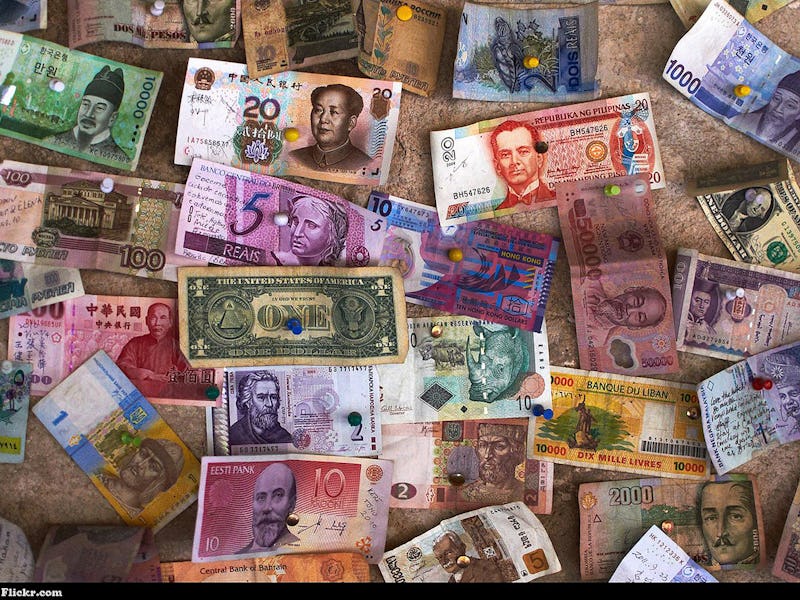What Happens When You Just Give People Money?
Sociologists may have found the most efficient, least intuitive model for charities.

The American charity-industrial complex is absolutely massive. In 2013, domestic not-for-profits netted some $335,000,000,000 just by asking politely. But that money didn’t necessarily make it to those in need because most charities perform services rather than dispensing cash. But should they? A number of studies and programs are demonstrating that — to be a bit reductive — people can be trusted to make good decisions if they have the cash to do so. Here are four experiments that might have charity workers reconsidering their strategies:
1. Kenya
The nonprofit GiveDirectly cuts out traditional middlemen and sends cash straight to those in need, regardless of education or background. According to one study of GiveDirectly’s Kenya program, recipients of $1,000 windfalls used the money to cover important expenses and take better care of their children. “We don’t see people spending money on alcohol and tobacco,” MIT economist Johannes Haushofer, one of the study’s co-authors told NPR. “Instead we see them investing in their kids’ education, we see them investing in health care. They buy more and better food.”
2. Vietnam
In 2006, Oxfam employed a similar cash grant to poor Vietnamese families — with explicit instructions that booze and drugs were verboten. The charity reported that a year and a half later, school drop-out rates fell, food security increased, and the poverty rate decreased from 65 percent at the time of the donations to 40 percent by 2008. Coffin purchases also went up: Honoring relatives is a critical part of the An Loc culture, so older beneficiaries prepared their own arrangements to spare their children the financial burden.
3. Canada
Certain social psychologists love to give people (invariably college kids) small amounts of money and see what happens next. In 2008, 46 University of British Columbia students were told to spend $5 or $20 on themselves or others. Those who bought something for other people reported more happiness at the end of the day-long test. In a follow-up study on altruism, two-year-olds who gave puppets their goldfish crackers or Teddy Grahams, which are basically toddler skrilla anyway, appeared to “exhibit greater happiness” than those who simply ate the treats themselves.
Brazil
Brazil’s bolsa família (family grant) program supports families with school-age kids via a cash card that lets parents draw money from the bank, few questions asked. More than 90 percent of families in the program, by design, have mothers helming the household — promoting not just self-sufficiency but better health among women in Brazil. The Guardian reported in 2013 that pregnant women in the program were 14 percent more likely to have births on time, rather than prematurely.